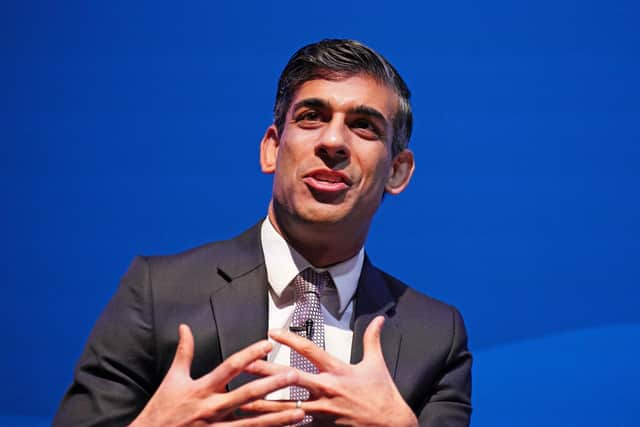Leader: Sunak must deliver on cost of living vow
The evidence before Chancellor Rishi Sunak as he prepares to deliver his Spring Statement on Wednesday is overwhelming.
Millions of household will have to absorb sharp increases in their energy bills from next month, when the government price cap is set to rise. Typical households face paying £1,971 a year from April - 54 per cent more than now, with a further rise expected in October.
Advertisement
Hide AdAdvertisement
Hide AdThe price of petrol and diesel has rocketed in recent months, with the surge in oil costs exacerbated by Putin's actions in Ukraine. Average prices stand at a record 165.9p per litre for petrol and 177.3p for diesel.


This in turn has led the Bank of England to warn that inflation could reach 8 per cent in the coming months, or even hit double digits for the first time in 40 years, pushing up the costs of food, clothing and transport for households already struggling to pay their higher energy bills.
It is little wonder personal finance expert Martin Lewis has warned he is “virtually out of tools to help people” and called for more “political intervention”.
Evidence of how the crisis is already taking its toll emerged at the weekend. A poll by Citizens Advice Scotland found three quarters of Scots who were blighted by debt during the coronavirus pandemic believe their mental health has suffered.
Mr Sunak has vowed he will help “where we can make a difference” and hinted he is prepared to cut fuel duty, acknowledging that high prices at the pumps are “one of the biggest bills people face”. But, given the scale of the strain on household finances, this move, however welcome, is unlikely to be enough.
Britain has the highest tax burden it has endured since the 1950s - a situation Mr Sunak has blamed on the pandemic.
The Chancellor must set out an extensive range of measures, which could include further tax cuts, a windfall levy on huge profits made by North Sea oil and gas companies, and scrapping plans to increase National Insurance contributions next month.
Otherwise, 2022 could prove financially ruinous for thousands.
Comments
Want to join the conversation? Please or to comment on this article.